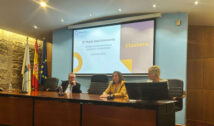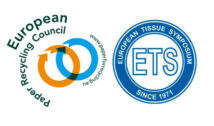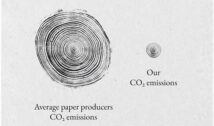
Today, the European Parliament Committee on Industry, Research and Energy, ITRE, voted on the revision of the renewable energy directive, or RED III. The vote was a welcome response to the need for an accelerated development of renewable energy sources in Europe. It also confirmed the importance of taking sustainability criteria into account when using biomass as clean energy.
The ITRE Committee push for an increased target of 45% of Europe’s energy coming from renewables by 2030 responds to the climate emergency, and the need for alternative energy sources exacerbated by the Russian threat on gas deliveries. Currently, just over 22% of Europe’s energy comes from renewables.
The revised directive could create the conditions for energy intensive industries such as the pulp and paper sector to decarbonise rapidly with the help of a transformed energy sector. It still remains to be seen whether it can do so without further increasing costs and damaging the competitiveness of Europe’s industry, which according to the proposal, would be bound to increase its share of renewables by 1.9%
annually, 2.3% for heating and cooling. The proposal does not make clear how these sub–targets would be reached. The need for such sub–targets itself is uncertain, as it lowers the level of flexibility that the industry would have on choosing a path to decarbonise.
A new amendment to the proposal put forward by ITRE is to phase out of fossil combustion for industrial heat of up to 200°C. This would directly impact the pulp and paper industry which enters in this category.
However, Cepi welcomes the fact that incentives from EU Member States to increase the availability and affordability of renewable alternatives are foreseen within the amendment.
The pulp and paper industry is both a bioenergy producer, for more than 60% of its own energy needs, and uses biomass as a raw material. It is therefore of utmost importance not only to source wood from sustainable sources, but also to use it in the most efficient way. This is why Cepi supports the ‘cascading principle’ of biomass. Cascading use of wood works naturally in a market setting, by allocating materials
efficiently to the products with the highest value. But there is a risk that unbalanced subsidies lead to distortions of this market. The ITRE vote backs the use of the cascading principle, which helps avoid that support schemes for bioenergy result in such distortions on markets for raw materials.
Still, the application of the cascading principle must be left to the Member States as it depends on local conditions. While Cepi does not believe that an implementing act, as proposed by ITRE, would be needed for the implementation at Member State level, ITRE’s approach is closer to the need for efficient use of wood than the arbitrary discrimination between primary and secondary biomass previously proposed by the ENVI Committee.
“We welcome today’s vote of the ITRE Committee. It is a positive sign for an industry committed to clean energy and a circular production model, based on the use of a renewable and sustainable material. We do question the general idea of setting a total cap on energy consumption in Europe as it runs counter the unavoidable increased energy consumption related to decarbonisation of energy, will prevent higher extent of value added in European manufacturing and is not compatible with EU’s strategic autonomy.”
Jori Ringman, Director General – Cepi (Confederation of the European Paper Industries)

































